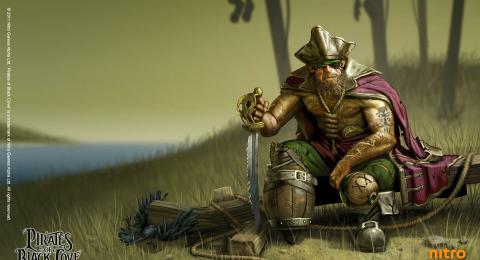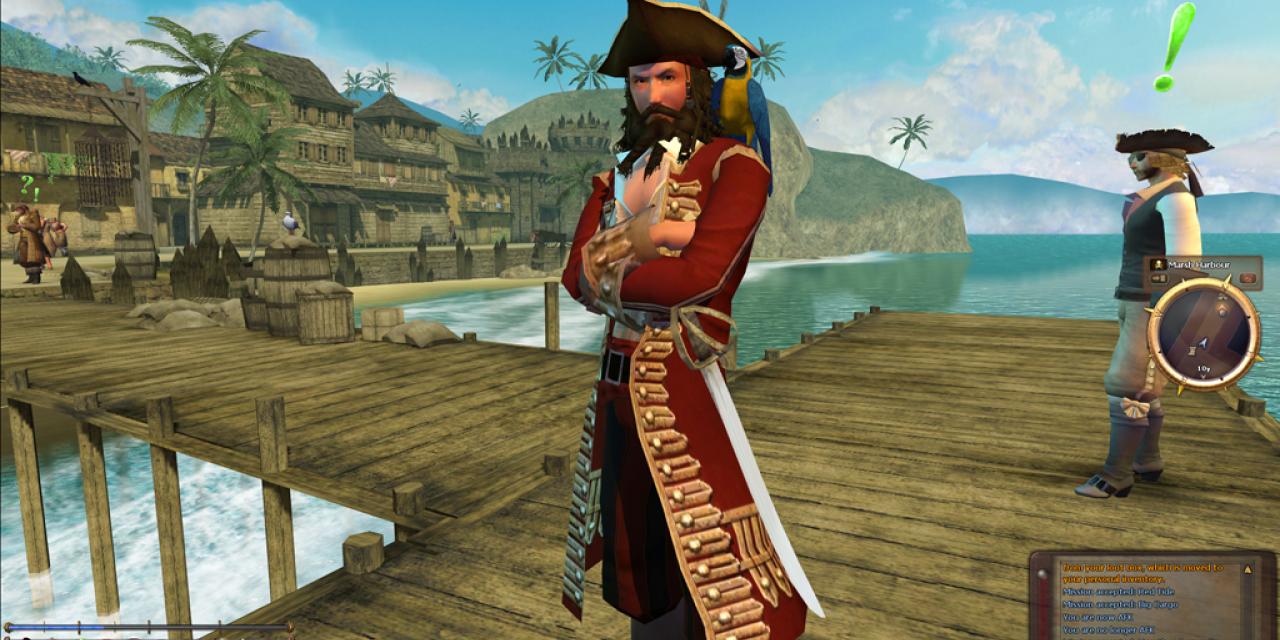
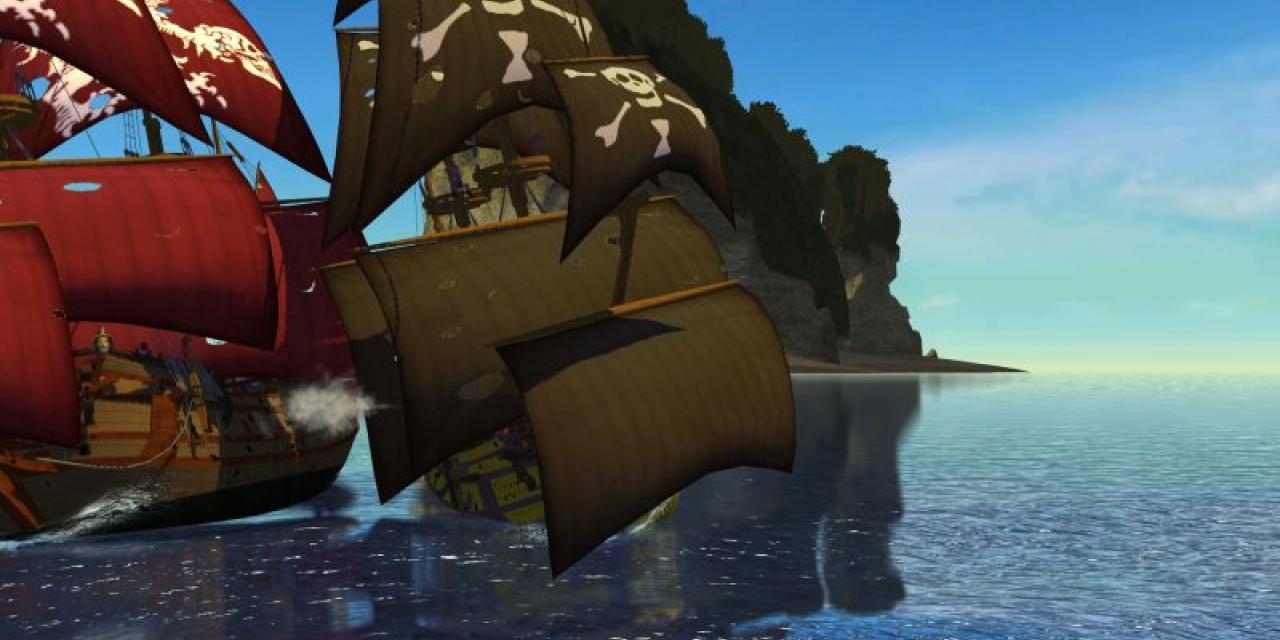
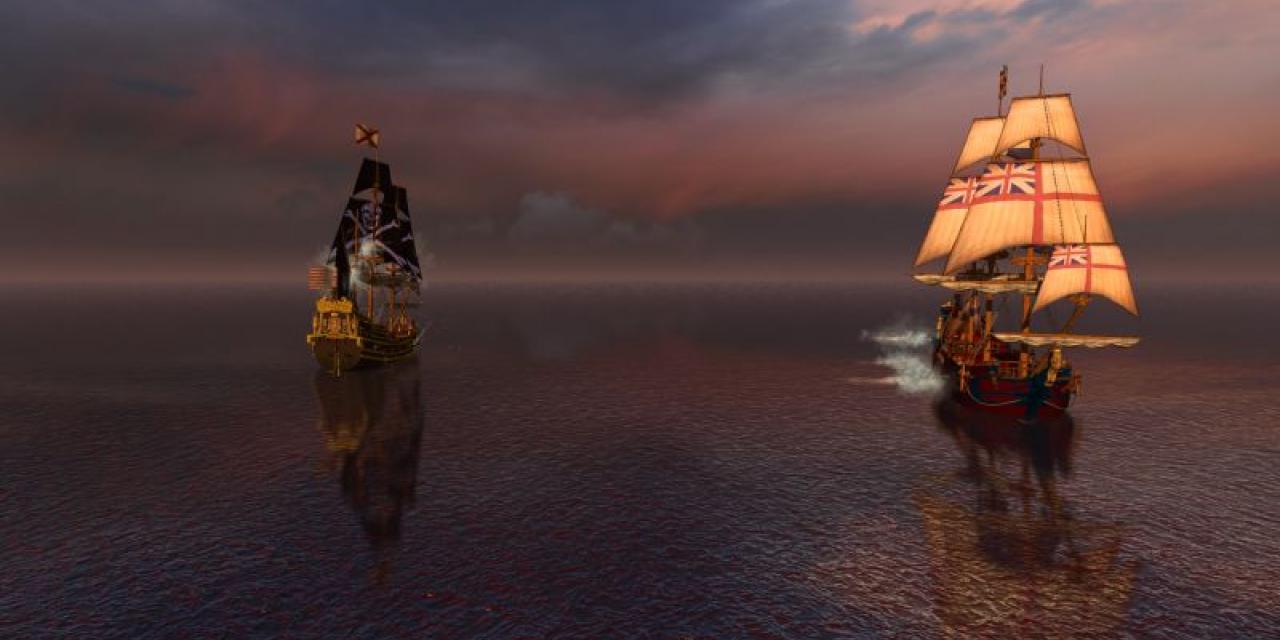
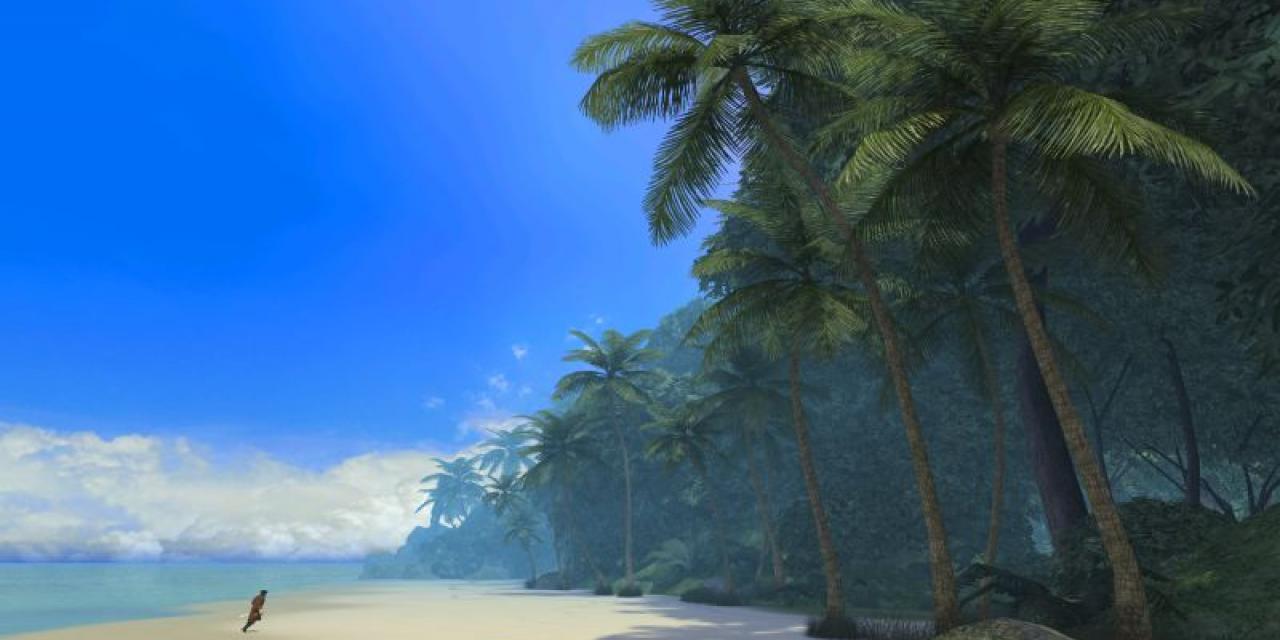
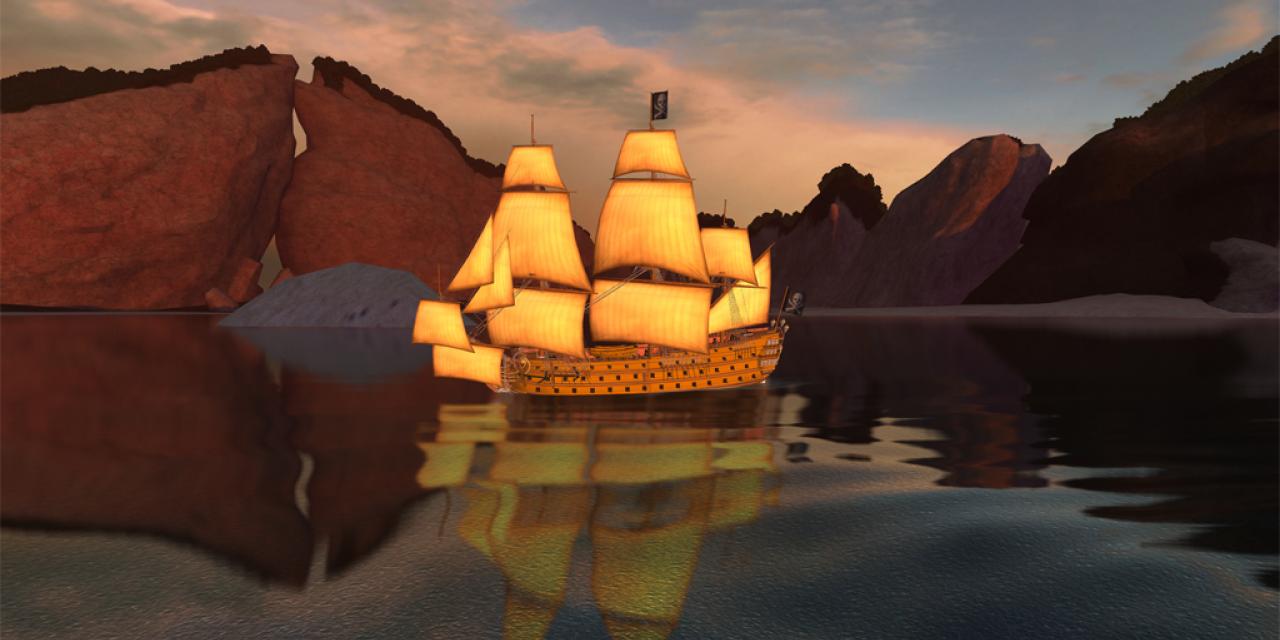
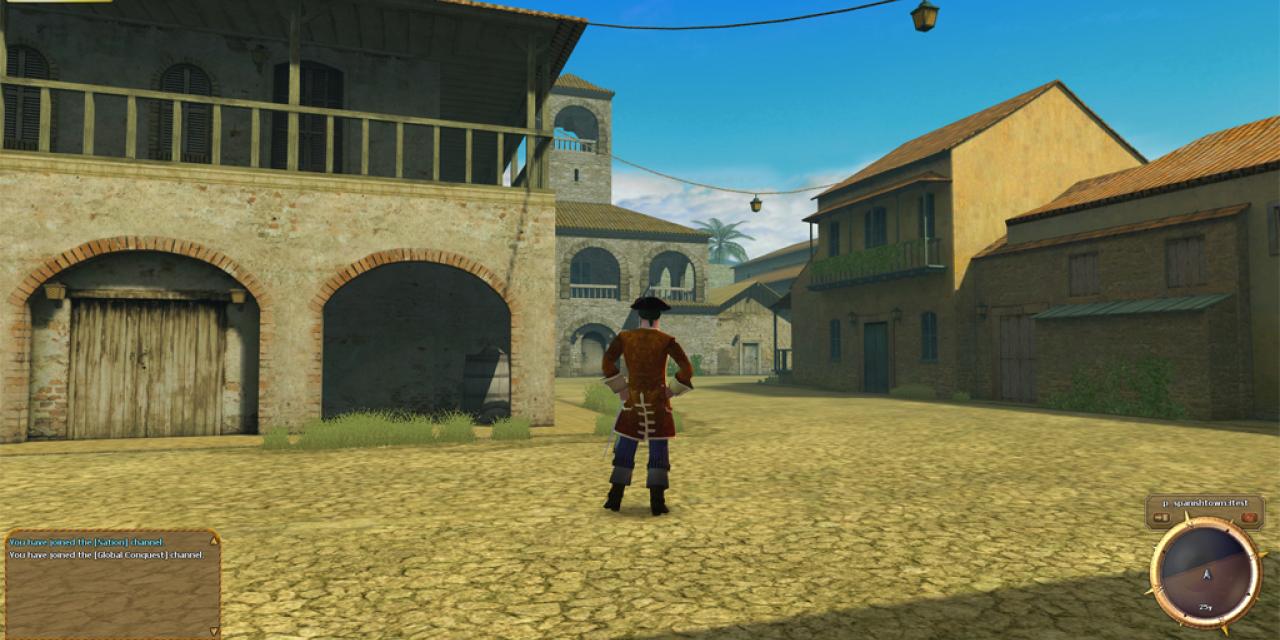
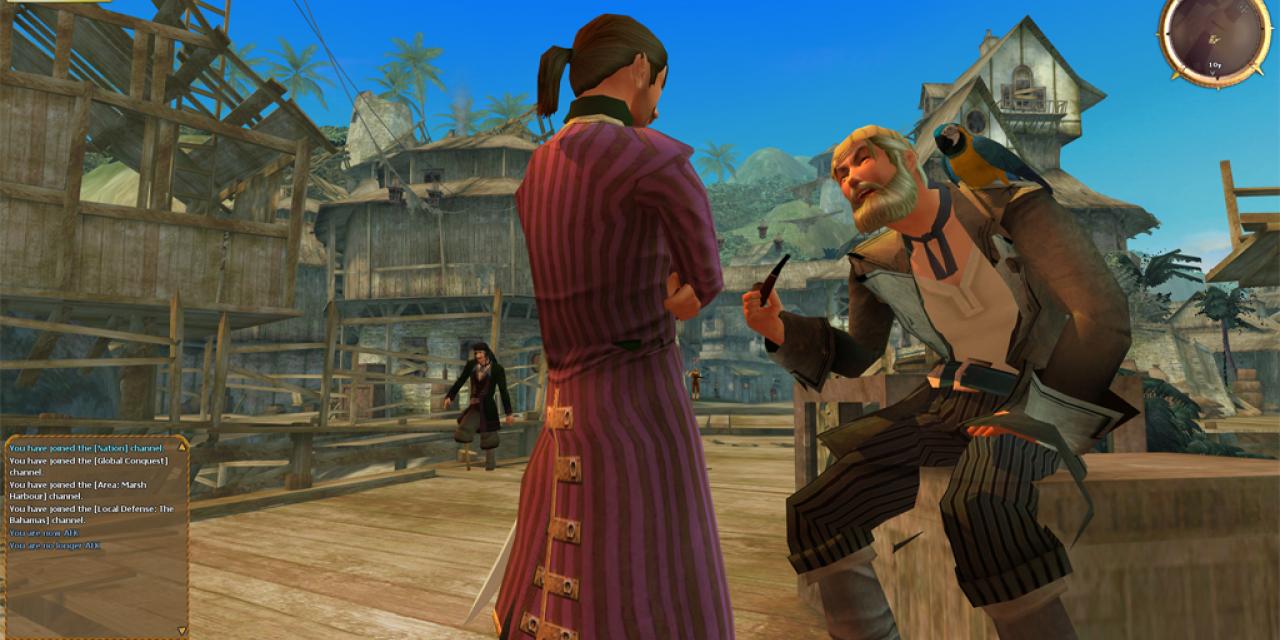
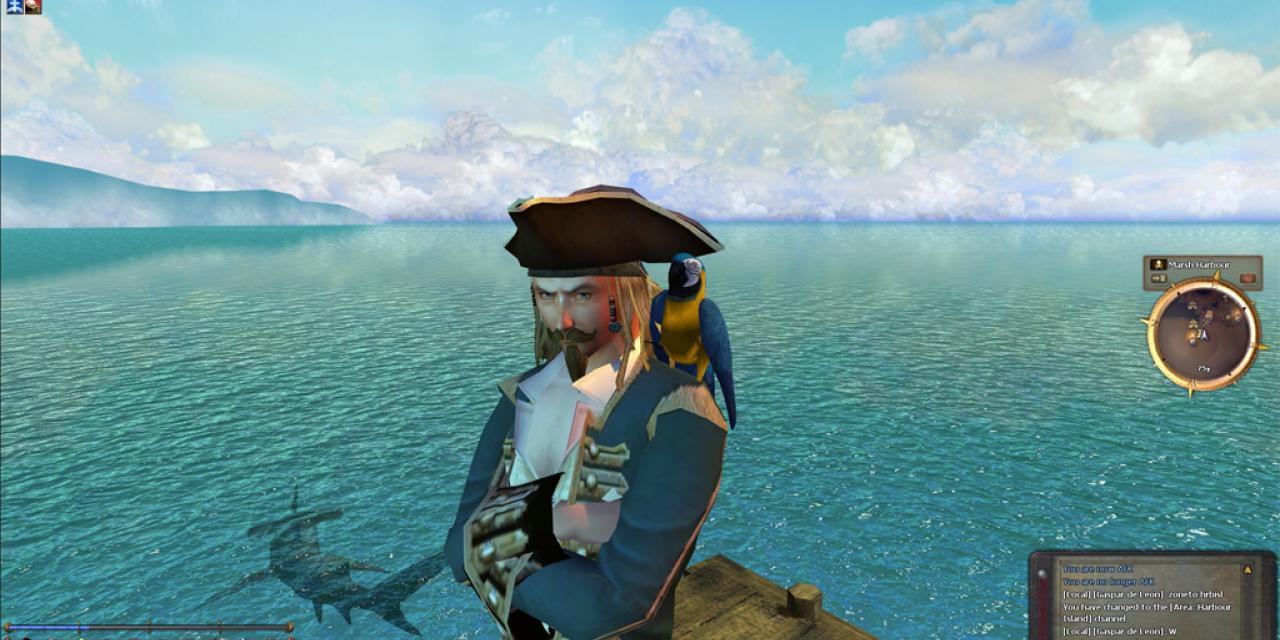
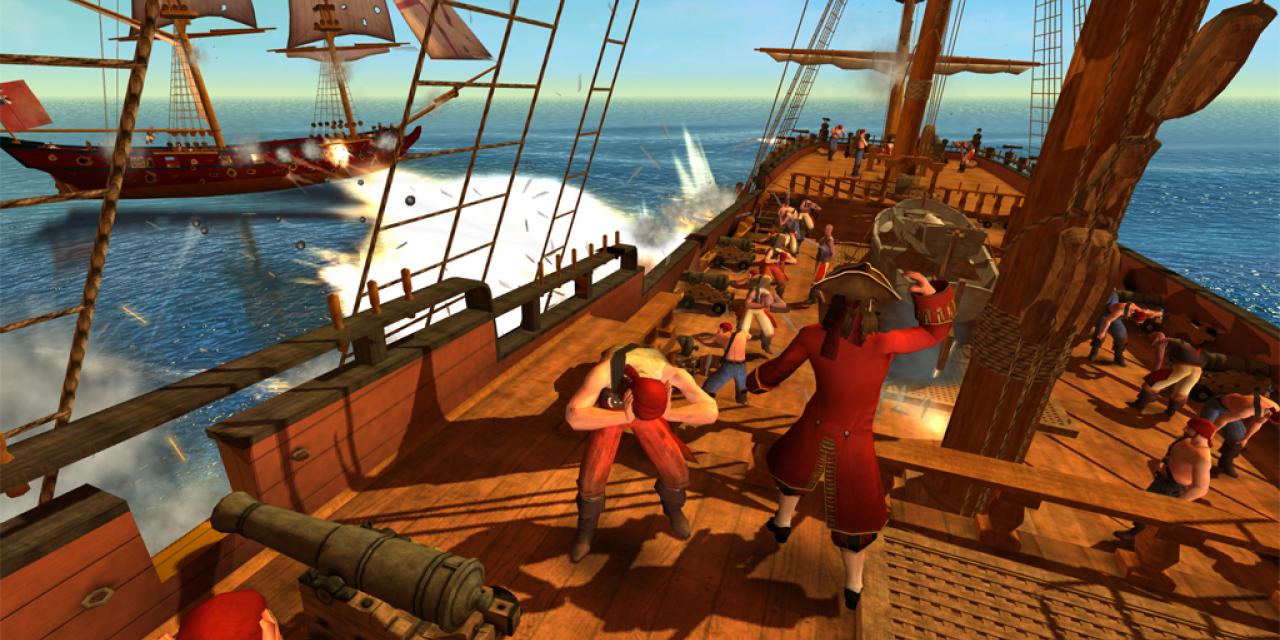
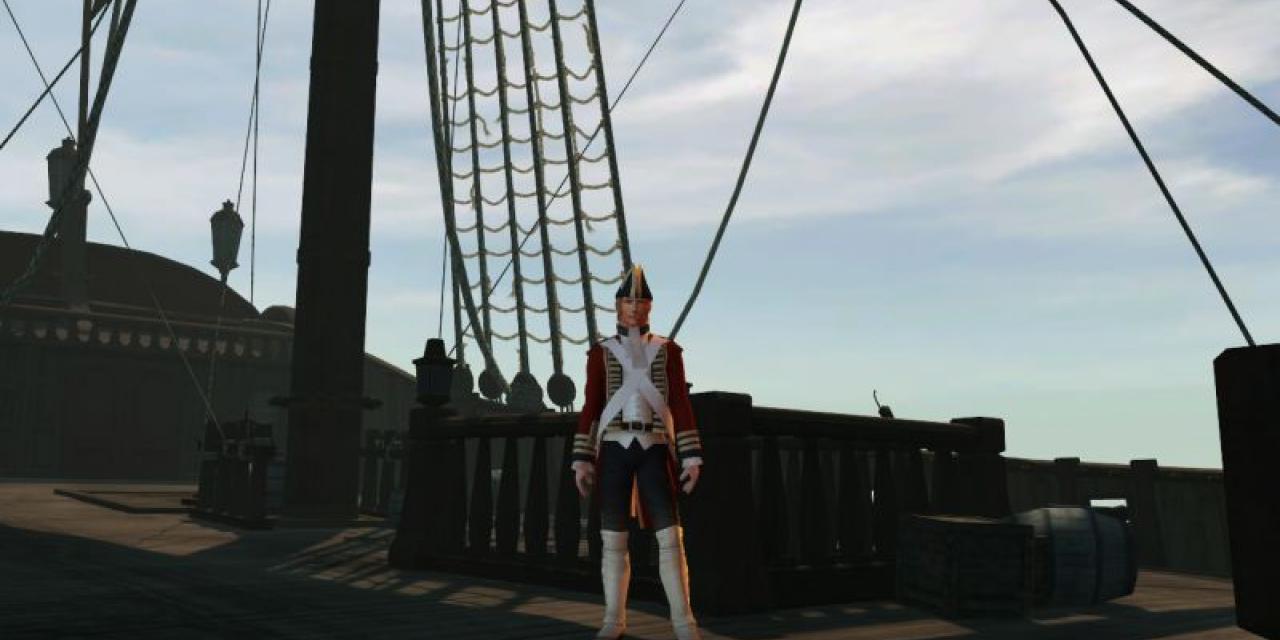
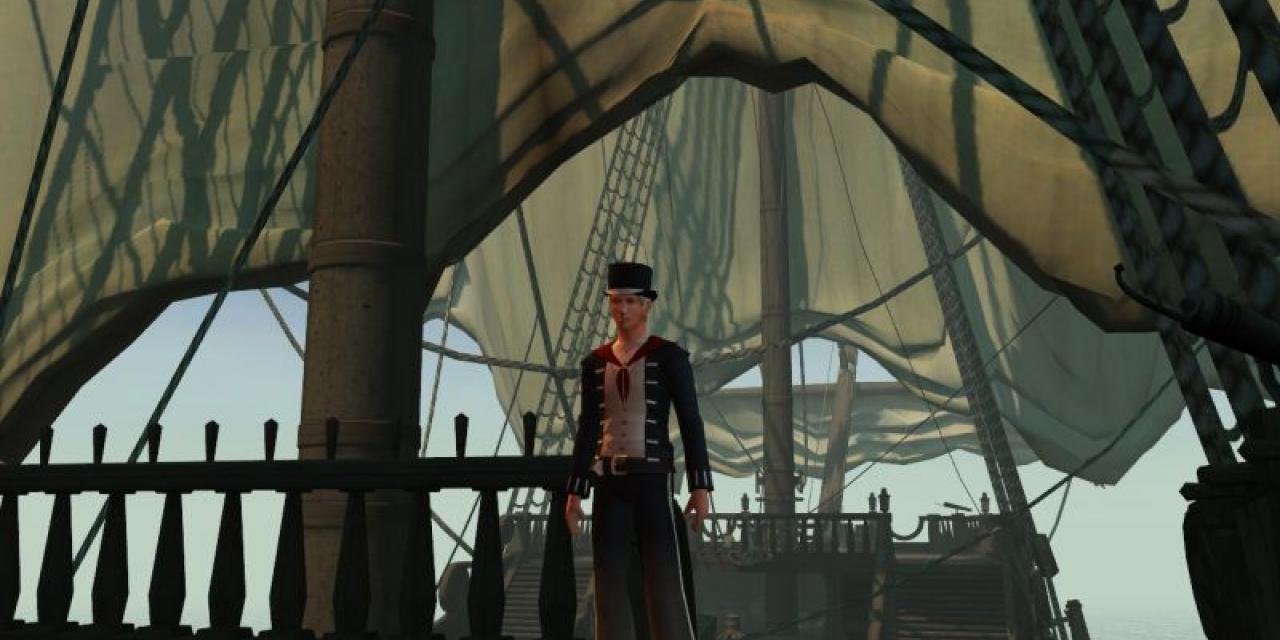
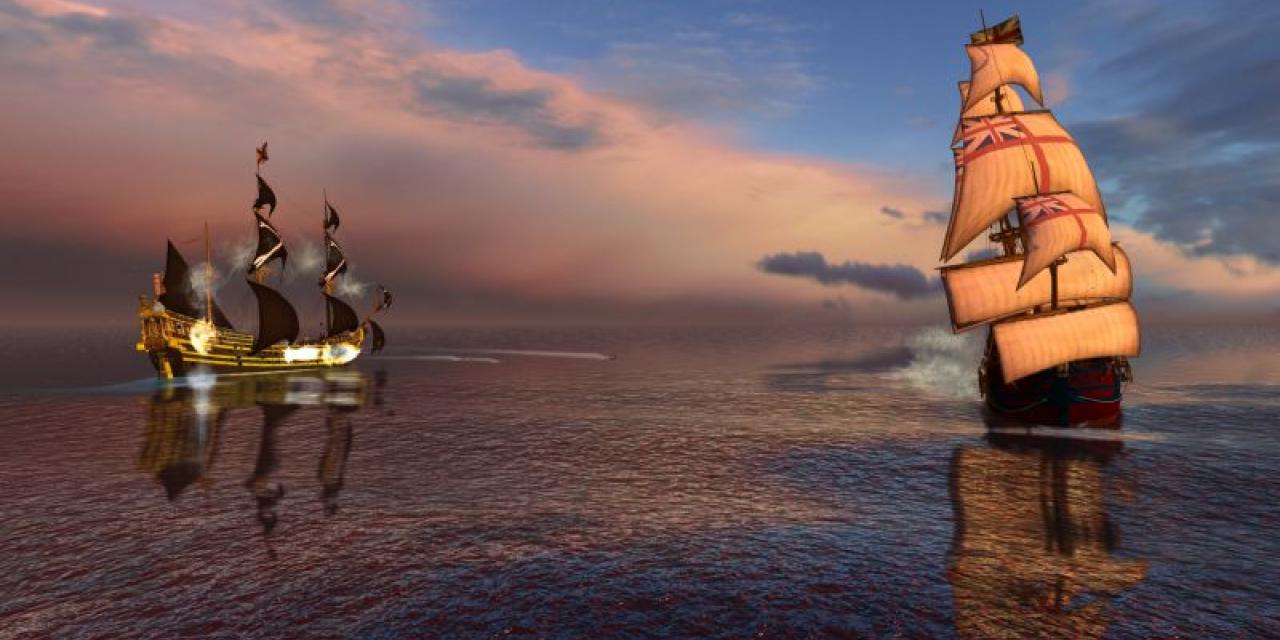
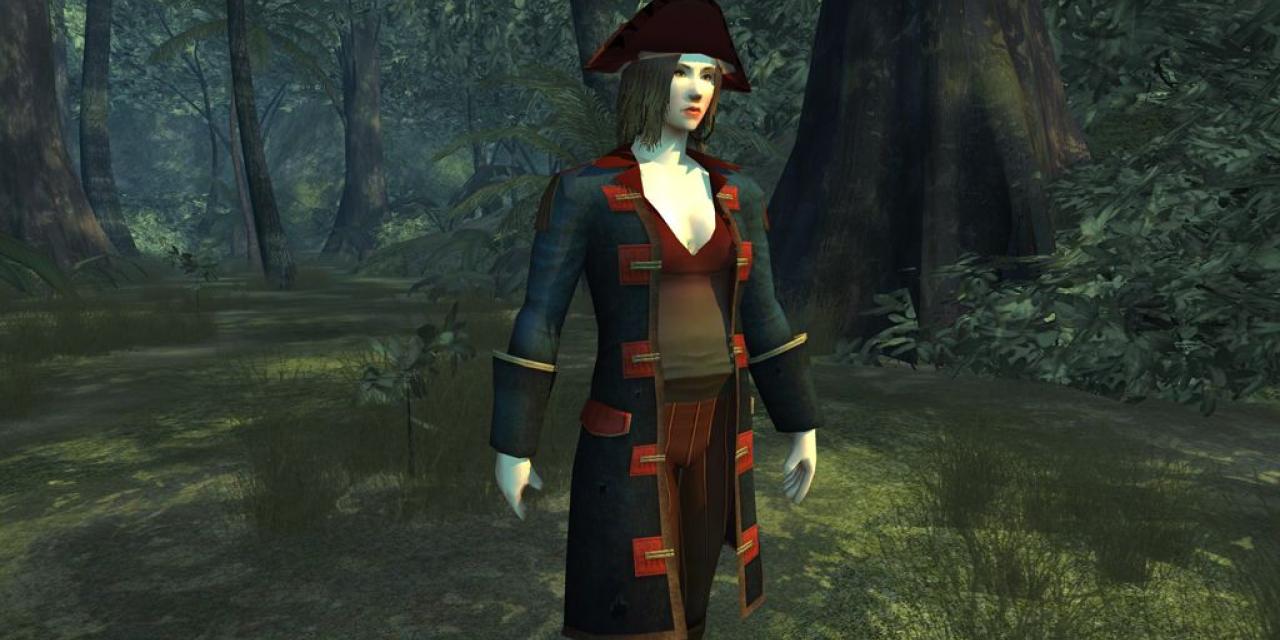
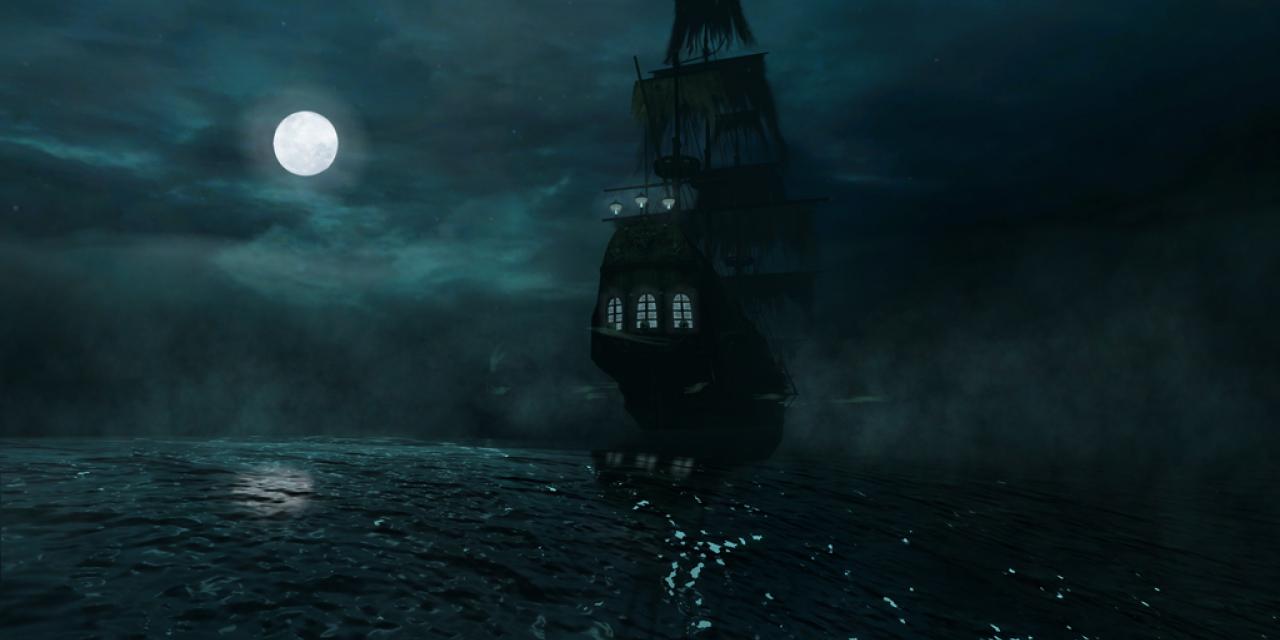
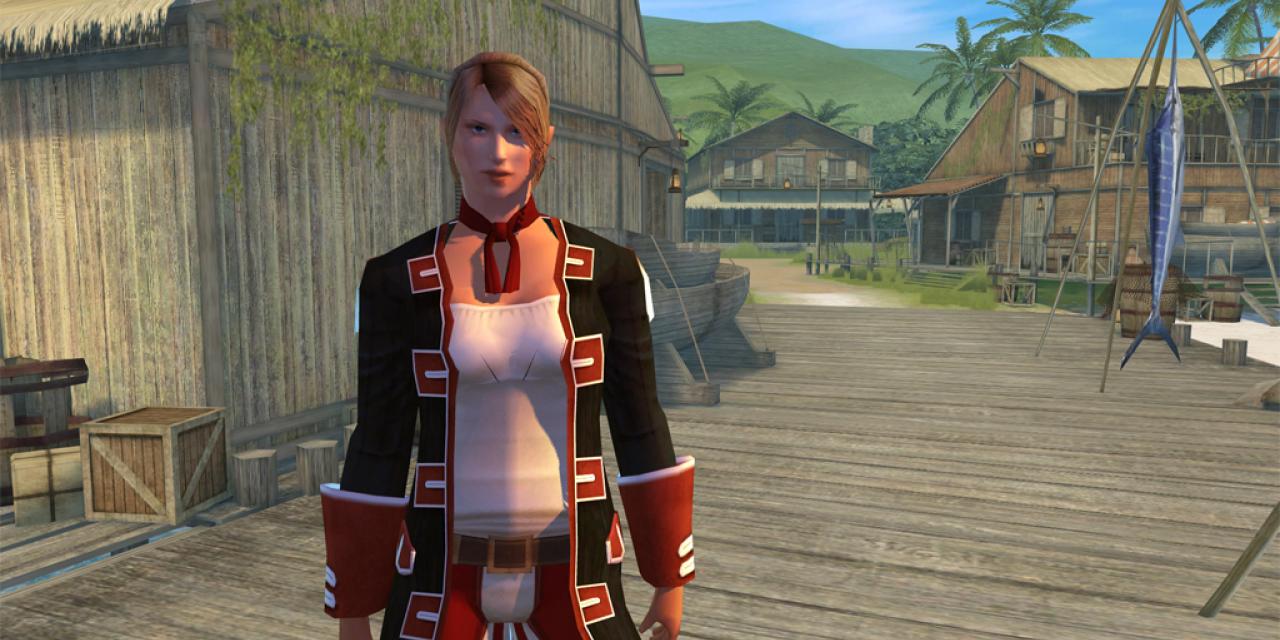
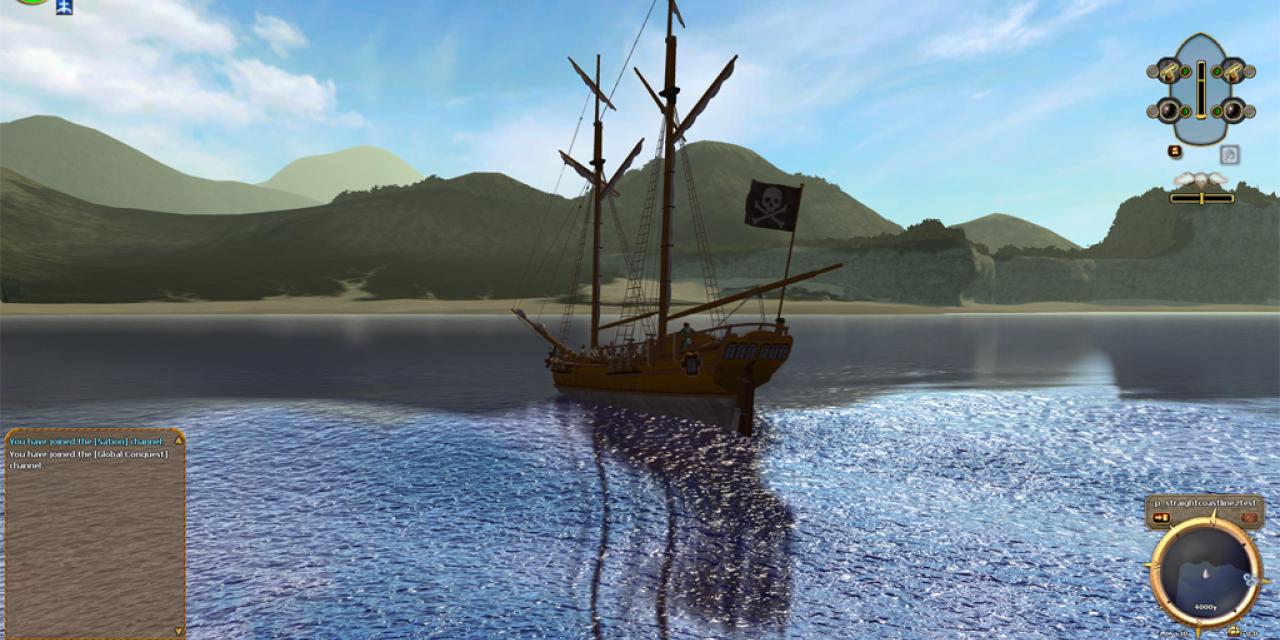
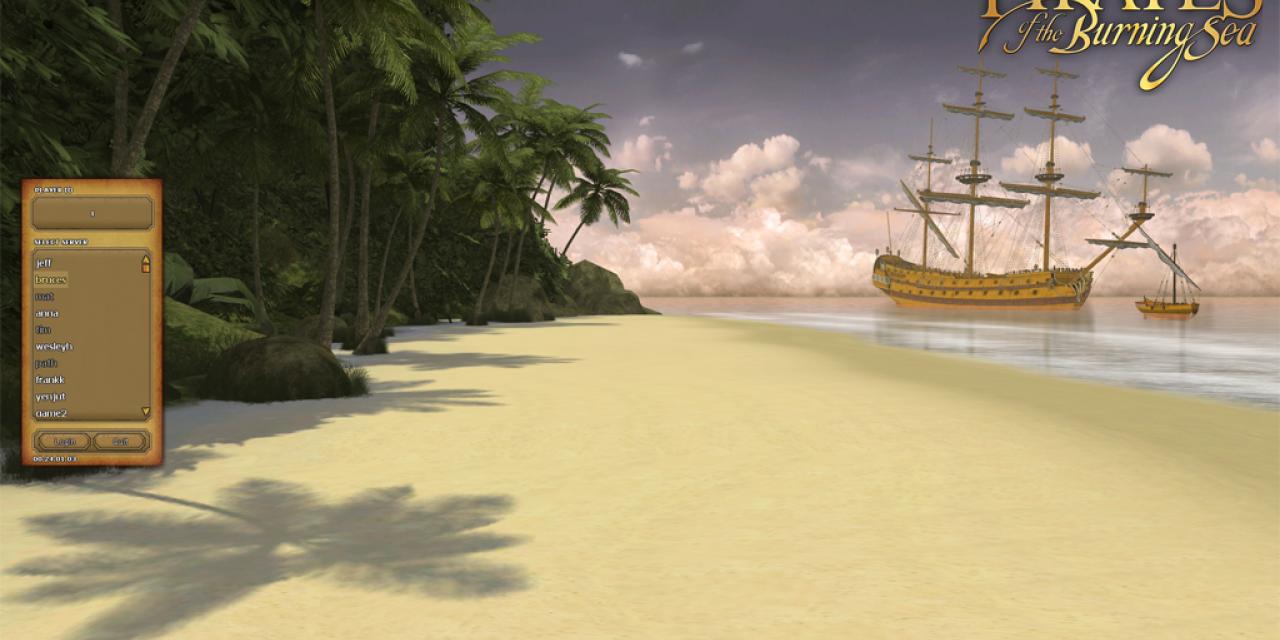
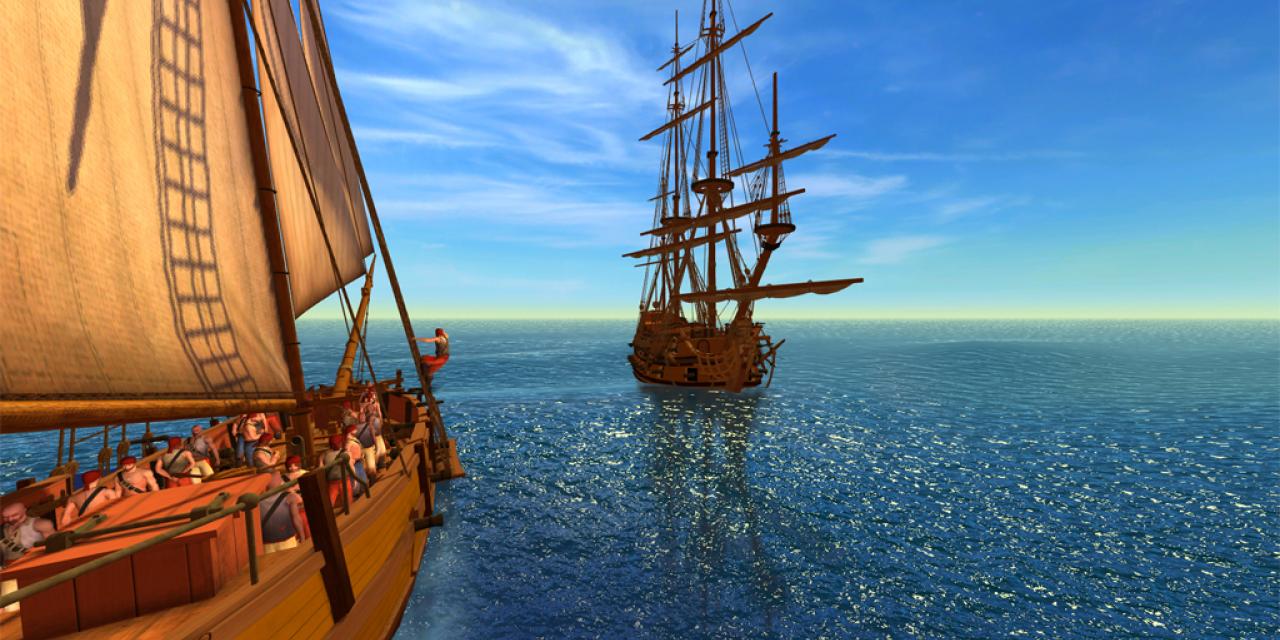
When Pirates of the Burning Sea finally goes live this January, we'll be halfway to the Pirates vs. Ninjas MMO that ever uber-nerd has been dreaming of since they first laid eyes on the internet. But there's a lot more here to be excited about than living out closet (or not so closet) obsessions with swashbuckling; PotBS marks a shift in attitude towards in-game combat that many other MMOs (cough, World of Warcraft, cough) have struggled with. Tack on superb character customization options and a well-thought-out rewards system, and we just might have a solid argument for why pirates are better than ninjas (so far as MMOs are concerned).
Here's the bare bones of what you need to know: Pirates of the Burning Sea has players picking a faction/country (France, Spain, England, or Brethren of the Coast [Pirates]) and a Career (Officer, Privateer, etc.), and then setting off in one of their 3 custom ships to do whatever it is they want to do (fight pirates, capture ports, sell goods, etc.). The game has been in development since 2002 and after a few false starts, it'll be hitting shelves January of this year (after a Beta delay that knocked it out of October). The reasons why you should play it are many, but if need just one, here it is: EFFIN' PIRATES!
Captained by Flying Lab Software (the guys that brought us Rails Across America way back in 2001), PotBS saw a lot of drama en-route to Gold status. The first delay led to rumors of vaporware and the next nearly cost them a publisher (talk about being dead in the water). It wasn't so much that the game looked bad as much as the development team realized that they might've bitten off more than they could chew. Originally planned a small-scale boat-based MMO (not too, too different from Sid Meyer's Pirates!), the project quickly escalated into a full-scale "OMG, we need a bigger development team" MMO. In other projects, this reimagining and fleshing-out tactic may have led to disaster (example, Vanguard: Saga of Heroes), but from what we've seen in Beta and at the Penny Arcade Expo in August, it's worked out for PotBS. Sony Online Entertainment seems to thing so too, and as the game became more complex, SOE picked the game up for distribution (maybe to head-off Disney's Pirates of the Caribbean Online).
As we saw in Rails Across America (assuming you've ever played it), FLS is all about the strategy and they didn't skimp on it when it came to putting PotBS together. The high level of detail in the game, in everything from the character development sections to the player-driven economy, speaks a more involved gaming experience that won't come off as "WoW in a boat". Keeping abreast of all these devilish details goes a long way towards explaining the delays in development and (sort of) makes us feel better about what we'll be getting our hands on this winter. In a recent interview with MMORPG.com, Developer and FLS founder Rick Saada said, "PotBS is the biggest and most complicated project I've ever worked on… It's great watching it all come together as we push towards ship."
Get it? "Ship"?
The big deal here is the player-driven economy. You'll hear many a forum poster whining about the economies of MMOs and how they're often wrecked by gold farmers and fixed-rate prices among in-game commodities. Owning in part to the setting of the story (1700s Europe), the economy in PotBS is a constantly-changing environment driven by players and their interactions with the world. Alliances between factions affect what price you pay for what goods and who's selling them. The commodities in the game are made by players (owning shipyards, lumber mills and stuff like that) who choose to participate in the crafting system (shelling out hulls for boats and metal for cannons) but every player will be affected by availability of goods which is determined by port contention. You'll have to sit tight 'til the gameplay section to get more details on that score, but sufficed to say, if France owns a port and doesn't like your faction at the time, you probably be paying a %25 tax increase as opposed to some pro-France player.
As to the more nitty-gritty question of hardware and *gulp* will this game work on Windows Vista, time will tell for certain. The stress testing seems to hold up well enough on Vista, but a few of you might have to fiddle with your graphics cards to get the ocean reflection looking as good as it can without incurring huge frame rate drops. We didn't have any problems with frantically chugging hard drives or alarming freezes due to overheating, but high traffic areas were of course a little laggy in Beta, but it's likely that'll be dealt with in the final release (they call them "stress tests" for a reason, folks.)
For the incredibly hardcore who need to know this information: the game engine belongs to Intrinsic Alchemy (from Marvel Ultimate Alliance). Pathfinding is done by PathEngine (the guys who're working on Guild Wars 2) and the physics are handled by the Ageia PhysX engine. Sound is provided by Miles Sound System and Promethean FX is handling the particle engine. And that gorgeous foliage you'll be ogling? Thank SpeedTree.
The PvP and PvE systems aren't anything innovative as far as technology goes. It's a simple stat-based operation without any of the fancy-schmancy calculations that games like Tabula Rasa rely so heavily on to determine the outcome of combat. For fighting (or "swashbuckling" as the game says) there's a balance gauge and a health gauge. To inflict any damage on an opponent's health, you have to knock them off balance, meanwhile trying to keep your own gauge intact.
Looked at from the wrong angle, PotBS might look no different from any other MMO â€" just with added nautical talk. You go into towns (ports) and look for quests, join guilds (Societies), you have a class (Career) and a race (nation) and can buff your avatar's tools of trade (ships, cutlasses, etc.).Getting beyond the semantics is easy though, once you set sail. The tutorial even takes place at sea, emphasizing that you're not running around Azeroth looking for wolves' tails or whatever. You're commanding a real ship, with real variables that affect your chances of sinking or swimming. And you're a pirate, so none of this "magical missile" attack business.
So far, there are 54 ships in the game, ranging from itty-bitty speedster ships to massive 21-gun ships of the line (read: kick ass navy boats). The developers say that there will be five different types of ship â€" Stripped, Courier, Heavy, Sleek and Mastercraft. Which type of ship you chose to helm affects your combat and maneuvering capabilities as well as your capacity for trade. Larger ships obviously can hold more cargo, but they're likely slower. Fast ships can outrun other ships, but will always have less armor and not-as-powerful guns. Because you're a pirate, your ship is life and death (aside from, you know, your health bar). Ships have Durability Points that deplete when you get owned by other ships. When the points run out, your ship sinks and you don't get it back (the closest thing this game comes to perma-death). Players can have up to three ships at any time and with the docking system, it's easy to "teleport" between the three even if you docked more than 30,000 miles away. To go along with this variety in boats, there's also a variety in cannons for the boats â€" nine different types across three categories (Round, Antipersonnel and Dismantle). Players will have a hell of a fun time decking out there ship and a hell of a fun time wrecking everybody else's.
The real shiny part of this game (that we've seen so far) is the incredibly detailed character creation system (well, as far as the clothing goes). Yes, face models and hair styles are fairly run of the mill (so far), but these are pirates we're talking about. There are hats to be considered, accessories to be tacked on, and tons of buckles to be swashed. In older builds, you could have everything from an eye patch to a peg leg and nearly any piece of clothing you had could be in any hue. The developers have since made peg legs and hook hands harder to obtain (you've got to earn your amputations, people!) but the customization is still has most of the avatars in Beta looking pretty distinct (not easy for MMOs).
The combat, as we said before, truly sets PotBS apart from other MMOs. Unlike Final Fantasy XI or various other games that isolate PvP, this savvy swashbuckler is hinged on player combat (PvP and PvE alike). We'll start with the fact that the game is set during a time of war and unrest between the three great naval powers of Europe (thus sanctioning player-killing within the confines of the lore) and move to the actual mechanics of combat between pirates. For this preview, we've got to leave the sword fighting out (they're still tweaking it before launch), but even from the earliest views of the game, the naval combat is superb. Controlling your ship is only half the battle; your survival depends on whether or not you can sink the other ship, board the other ship and take it over, or flee the other ship with at least one Durability Point to your name. Because you're the captain of the ship (and it's the open ocean), you can plot courses that take you away from combat, or plough right through it.
PvE can go down just about anywhere (especially during land-based quests where you have to rescue something or somebody). Most of the PvP fighting is confined to zones around ports. The ports are held by one of the warring factions and can change hands depending on which country has the most contention points. Contention points are accrued by players via questing, unbalancing the port's economy (like throwing a Boston Tea Party), or killing NPCs around the port. When the port goes into contention, an area around the port becomes a Pirate PvP zone where the nations can't attack each other but pirates and privateers can run amok. If the defending nation loses this stage of combat, the second stage begins where a smaller PvP zone opens up and the countries can attack each other. And the last phase is by far the most boss â€" a Battle Royal begins and the 24 players with the highest number of earned contention points will represent their country and fight for the right to the port.
The real make-or-break for Pirates of the Burning Sea won't be just the combat, or the character creation, or the fact that it caters to every pirate fanboy who ever lived; it'll be the fun factor, pure and simple. At this point, as with all games in Beta, nothing is certain.
But we've got to say, we like what we've seen.
Pros:
+ Graphics
+Ship and flag customization
+Fun naval combat
Cons:
-Getting lost in towns
-Being able to avoid all combat with careful mapping (that's just no fun!)
-Dealing with spectral enemies and super-quick zombie bosses
Wait and See:
+/-The port contention system
+/-Having to work to get a peg leg (isn't the more effective pirate the one with both legs?)
+/- The player-driven economy


